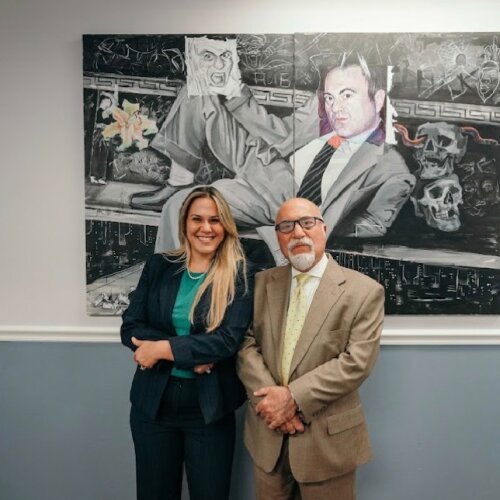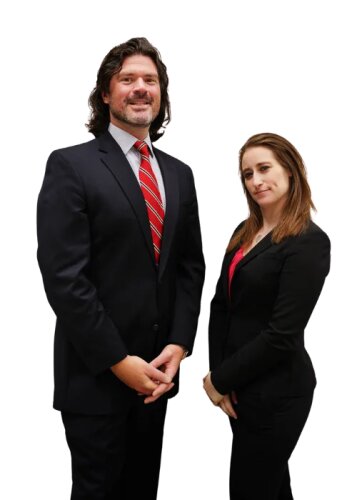Best Dependent Visa Lawyers in New York
Share your needs with us, get contacted by law firms.
Free. Takes 2 min.
Or refine your search by selecting a city:
List of the best lawyers in New York, United States
About Dependent Visa Law in New York, United States
A Dependent Visa allows family members of individuals who are studying, working, or residing legally in the United States to join them. In New York, this often applies to the spouses and children of visa holders such as H-1B (specialty occupations), F-1 (students), L-1 (intra-company transferees), and other categories. While federal immigration laws set the rules for Dependent Visas, local factors such as access to legal resources and support networks in New York may influence the process and overall experience.
Why You May Need a Lawyer
Navigating Dependent Visa applications can be complex and stressful. People often seek legal advice in situations such as:
- Completing visa applications correctly and gathering the necessary documents
- Understanding eligibility for work or study as a dependent in New York
- Assisting with renewals, extensions, or status changes
- Troubleshooting delays or denials from United States Citizenship and Immigration Services (USCIS)
- Dealing with visa overstays or violations
- Advising on reentry to the United States after travel abroad
- Managing family difficulties such as separation, divorce, or domestic concerns impacting visa status
A qualified attorney can help clarify rules, avoid costly mistakes, and represent your interests if issues arise.
Local Laws Overview
While Dependent Visa law is governed primarily by federal statutes and regulations, certain local elements are important in New York:
- Access to Services: Some city- and state-run programs assist immigrants, including legal aid, English language classes, and children’s services.
- Educational Rights: Children with dependent visas generally have the right to attend New York public schools.
- Employment Restrictions: Spouses or dependents on certain visas, such as H-4, may have limited work rights, while others like L-2 may be eligible to apply for work authorization. New York employers will require proof of eligibility to work.
- Legal Protections: New York provides robust legal protections for all residents, including protections from discrimination and access to justice.
- State and Local ID: New York City offers IDNYC, a municipal identification card for residents regardless of immigration status, which can help with daily activities.
It is important to be aware of both federal and local requirements when applying for or maintaining a dependent visa in New York.
Frequently Asked Questions
What is a Dependent Visa?
A Dependent Visa allows certain family members, typically spouses and children, to accompany or join the main visa holder in the United States.
Who is eligible for a Dependent Visa?
Eligibility depends on the main visa holder's status. Typically, only legal spouses and unmarried children under 21 are eligible for dependent visas like H-4, F-2, or L-2.
Can a dependent work in New York?
Work authorization depends on the type of dependent visa. For example, H-4 dependents are only eligible to work in certain circumstances, while L-2 dependents can generally apply for work authorization.
Can children on a dependent visa attend school in New York?
Yes, children on dependent visas can usually enroll in public schools in New York.
Do dependents need to maintain their own status?
Dependents' visas are tied to the main visa holder's status, so if the main visa holder's visa expires or is revoked, the dependent's status is at risk.
Are there any travel restrictions for dependents?
Dependents must have valid visas and documents to reenter the United States after international travel. Travel while an application or extension is pending can be risky without legal advice.
How do I extend a dependent visa?
Extensions usually involve filing the appropriate forms and supporting documents with USCIS, and sometimes an interview or biometrics. Legal guidance can help avoid delays.
What happens if my dependent visa application is denied?
You may have the option to appeal, file a motion to reopen, or reapply. Consulting with an immigration lawyer can help determine the best course of action.
Can I switch from a dependent visa to another visa type?
In some cases, dependents can apply to change their status from a dependent visa to another nonimmigrant or immigrant visa category if eligible.
Where can I find help if I cannot afford a lawyer?
Several nonprofit organizations and legal aid groups in New York offer free or low-cost immigration help for people who qualify based on income or other factors.
Additional Resources
Here are some resources and organizations that offer information, support, or legal assistance for dependent visa matters in New York:
- United States Citizenship and Immigration Services (USCIS)
- New York Legal Assistance Group (NYLAG)
- Legal Aid Society of New York
- Immigrant Defense Project
- New York City Mayor's Office of Immigrant Affairs
- International Student Offices at universities in New York
These organizations can offer guidance on your application, renewals, rights, and help you connect with experienced immigration attorneys.
Next Steps
If you need legal assistance regarding a Dependent Visa in New York, consider the following steps:
- Gather all documents related to your visa and your dependent's status
- Contact a qualified immigration attorney experienced in Dependent Visa applications
- Seek a consultation to discuss your specific needs and circumstances
- Contact nonprofit organizations or legal aid services if you require affordable assistance
- Stay informed about current immigration rules and local requirements in New York
Acting promptly and consulting with knowledgeable professionals can help you avoid issues and ensure the best possible outcome for your family's future in New York.
Lawzana helps you find the best lawyers and law firms in New York through a curated and pre-screened list of qualified legal professionals. Our platform offers rankings and detailed profiles of attorneys and law firms, allowing you to compare based on practice areas, including Dependent Visa, experience, and client feedback.
Each profile includes a description of the firm's areas of practice, client reviews, team members and partners, year of establishment, spoken languages, office locations, contact information, social media presence, and any published articles or resources. Most firms on our platform speak English and are experienced in both local and international legal matters.
Get a quote from top-rated law firms in New York, United States — quickly, securely, and without unnecessary hassle.
Disclaimer:
The information provided on this page is for general informational purposes only and does not constitute legal advice. While we strive to ensure the accuracy and relevance of the content, legal information may change over time, and interpretations of the law can vary. You should always consult with a qualified legal professional for advice specific to your situation.
We disclaim all liability for actions taken or not taken based on the content of this page. If you believe any information is incorrect or outdated, please contact us, and we will review and update it where appropriate.
Browse dependent visa law firms by city in New York
Refine your search by selecting a city.















